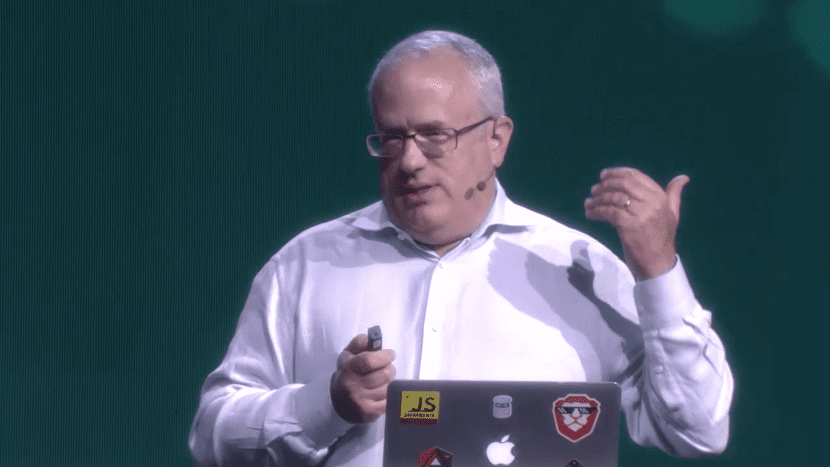
Brendan Eich talks about Brave and other important topics
En a report granted to the Fast Company portal, Brendan Eich talks about the brave browser. In addition, it touches on other topics such as privacy on the web, the way to fund content creators and the uneven way in which the sanctions on the GPRD are applied.
Is an important voice. Eich was the Javascript creator, one of the languages most used to make the web interactive and, as the author of the interview makes clear with some malice, to show invasive ads, consume system resources, drain the battery, heat up the device and inject malware.
Eich was also co-founder of the Mozilla Foundation, which he resigned after a boycott campaign he suffered for supporting the wrong side in a plebiscite. Mozilla never recovered from his departure, but the politically correct fundamentalists were happy.
Chrome compatibility
The journalist begins by asking about what that is missing for Brave to be a complete alternative to Chrome. Eich cites two aspects; the sync using Google accounts and lto streaming content to other devices using Chromecast. With regard to the first, there is no solution. Activating Google accounts means allowing tracking. This makes Brave only able to use extensions that do not imply their use.
Chromecast support is disabled in the Chromium codebase, so the Brave developers are working towards it.
Privacy
Brendan does not believe that users privilege convenience to the detriment of privacy in important situations. He gives as an example the penetration of Snapchat and its disposable messages among young people. He points out that now the most important messaging applications are encrypted and the anger at Facebook for the leaks.
On the other hand, it points out the uneven application of sanctions for the violation of the GDPR. He says only the smallest rapists were fined, although he believes that at some point Google and Facebook are going to get them. In this sense, it draws attention to the Internet advertising systems affirming, that allow access to sensitive data about personal or embarrassing searches
What types of people use Brave?
The article mentions that a large part of the 6 million users joined last year and that Eich plans to reach ten million by mid-2019. The interviewee believes that the main base is people interested in the technology that they brought to their families that without being it they are interested in the benefits of Chrome without its privacy problems.
Ads and rewards.
The bulk of the report is taken by the reward system for editors and users that Brave is working on. Which is inevitable because that's what sets it apart from other Chrome-based browsers.
Eich says that he is working on a contextual ad system similar to what Google search results show, with the difference that determining which ads are most relevant will be done locally. No data is sent to Brave's servers or that of advertisers. Relevance will be based on the browsing history of each user.
The proceeds from advertising will go in a 70% to content creators, 15% to users who agree to view ads and another 15% to finance the development of the browser.
A token system based on Ethereum. The so-called Basic Attention Tokens or BAT. The report does not say so, but BATs can be transformed into legal tender by linking the account to the Uphold payment service.
Eich says that it was easier to convince users (who ultimately get a faster browser and without ads) than publishers and advertisers) They, because they are not specialists, are made noise by a browser that blocks ads for effect.
I end with what I think is the best phrase in the report. Making a play on words with the Google motto, D'ont evil Eich notes:
We want to achieve not being bad by relying on encryption and mathematics, not on goodwill